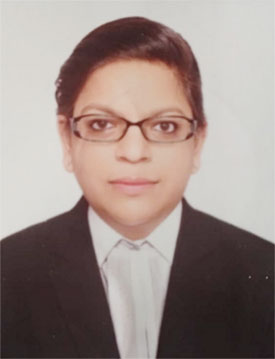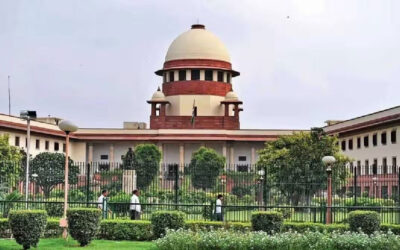Women have discovered that they can no longer rely on men’s chivalry to give them justice!
The woman of the 21st century has indeed come a long way in her journey for equal rights and opportunities. She is no longer the one who asks…….she takes what is a matter of right to her. For the 21st century woman, the most difficult thing is the decision to act, the rest is mere tenacity. The fears are paper tigers. She can do anything she decides to do. She can act to change and control her own life. For that she must know what her rights are and how to fight for them. The biggest problem confronting women in India is their high financial dependence on their husbands, fathers or other male relatives. The day a woman becomes financially independent is the day she soars high in the sky with no chains binding her to the ground. It is imperative that a woman knows her rights as far as those concerning maintenance go.
Legally speaking:
Maintenance is a right to get necessities which are reasonable from another. it has been held in various cases that maintenance includes not only food, clothes and residence, but also the things necessary for the comfort and status in which the person entitled is reasonably expected to live. According to sec 125 CrPC, which belongs to the Unform Civil Code and has no relationship with any personal laws in existence in India, the following women are entitled to claim maintenance :
- WIFE
A wife who is unable to maintenance herself is entitled to claim maintenance u/s 125 CrPC. Th e term wife here includes a woman who has been married and who has obtained divorce rom her husband and has not remarried. This section was mainly enacted to provide a quick remedy to women who were unable to maintain themselves. As per the muslim law, a husband’s liability to provide for maintenance of his wife is only to the period of iddat. It was to rectify this situation that sec 125 was brought into play. The Supreme Court has however held that for the purposes of sec 125, wife means a legally married woman and the legality of the marriage would continue to be governed by the personal laws applicable to the parties.
- FEMALE CHILD:
Under sec 125 of the CrPC, a minor female child, if unable to maintenance herself, is entitled to claim maintenance whether such child is legitimate or illegitimate, whether married or unmarried. A minor married girl is entitled to claim maintenance from her husband and if he is not possessed of sufficient means to maintain her then in that event, she may even claim maintenance from her father till she attains majority. In fact, even after attaining majority, a legitimate or illegitimate female child is entitled to claim maintenance from her father if by reason of any physical or mental incapacity, she is unable to maintain herself.
- MOTHER:
A mother who is unable to maintain herself can also claim maintenance from her son. Sec 125 is silent and does not specifically provide for liability of a daughter to maintain her parents. This lacuna has given rise to a conflict of opinion among the various High Courts on the question of the liability of a daughter to maintain her parents. The issue has now been decided by the supreme Court that the daughter whether married or unmarried would be liable to maintain her parents. The court said that even in the absence of any law, the Indian Society casts a duty on the children to maintain their parents and that the social obligation equally applied to the daughter. There are also various clarifications and specifications that are made as and when the issue arises in this regard for example, it has been held that having regard to the object and the intention of sec 125 CrPC, the term ‘mother’ will have to be given its natural meaning and the same will not include a ‘step mother’.
Having discussed about who all are capable of asking for a maintenance u/s 125 CrPC, it is also important to review the essential conditions for the granting of maintenance. The same can be summarized as follows:
- SUFFICIENT MEANS TO MAINTAIN:
The maintenance granted u/s 125 CrPC will be subject to the capability of the person who is liable to pay the same. The person from whom the maintenance is claimed, must have sufficient means to maintain the person who is claiming the maintenance. Such means do not mean only the visible means like land, property etc. If it is observed that the person concerned is healthy and able bodied then he will be held to have the means to support his wife/daughter/mother.
- NEGLECT/REFUSAL TO MAINTAIN:
The person from whom maintenance is claimed u/s 125 CrPC, must have neglect or refused to maintain the person entitled to claim maintenance. This can be either direct neglect/refusal or it may also be by conduct. Even if the husband is for example by virtue of personal laws allowed to maintain more than 1 wife while the first marriage subsists, the first wife may be justified in considering the second marriage itself a good ground for living separately and seeking maintenance from the husband.
- PERSON CLAIMING MAINTENANCE MUST BE UNABLE TO MAINTAIN HERSELF:
Sec 125 was enacted to mainly prevent vagrancy and hence this benefit is available only to women who are unable to maintain themselves. U/s 125, a maintenance allowance cannot be granted to every woman who asks for it. It is granted to only those whose husbands neglects/ refuses to maintain them and if they are unable to maintain themselves. There are also certain circumstances that debar a wife to claim maintenance, they are:
- The right of maintenance to wife is subject to the rule that she must be chaste and has not remarried.
- Wife must not refuse without sufficient reasons to live with her husband.
- The wife must not be living separately by mutual consent.
There are also sufficient reasons that have been upheld by the courts to be valid reason for the wife to live separately from her husband. These are :
- The husband has contracted another marriage or keeps a mistress.
- The husband is denying the paternity of the child and is hence indirectly accusing the wife to be unchaste. There are a catina of judgements that held that the accusation of adultery is sufficient cause for refusal on the part of the wife to reside with the husband. In fact, it has also been held that a false accusation of unchastity amounts to cruelty.
The question of where to file for maintenance is also worthy of consideration here. Proceedings for maintenance u/s 125, Crpc may be taken against a person in any district:
- Where the husband resides,
- Where the husband or wife reside.
- Where the husband last resided with his wife, or as the case may be, with the mother or illegitimate child.
Women have also been given an added advantage as far as the maintenance proceedings are concerned. It is usually seen that a deserted wife/daughter/mother is compelled to live with a relative far away from the place where she resided with her husband/father/son/daughter. For the sake of convenience, the territorial jurisdiction for such a woman has been made wide enough to include the place where she might be residing on the date of the application for maintenance. The courts have also held that the term ‘reside’ means something more than a flying visit and does not include a casual stay in a particular place. The primary thing to be seen is the intention of the woman claiming maintenance.
Once an order for maintenance has been passed by a court off competent jurisdiction, the same can be enforced under the following circumstances:
Any person who has been ordered to pay maintenance u/s 125 CrPC, fails to make such payment without sufficient cause, will have to face the possibility of warrants being issued against him. After the execution of warrants, I the whole or a part of the maintenance ordered still remains unpaid, the court may sentence the defaulter proceeded against to imprisonment for a term which may extend to 1 month or until payment whichever is sooner. A warrant of arrest is issued in such cases only if recourse to attachment and sale of property fails.
Any order for maintenance once made, can also be cancelled if it is proven that the wife
- Is living in adultery
- Has refused to live with her husband without sufficient reason
- Is living separately by mutual consent.
- Has remarried after obtaining divorce from her husband who was paying maintenance to her.
All said and done, we can summarize by saying that any right that a woman has towards her own maintenance is always subject to various conditions. Whenever she is found to be entitled to maintenance, the extent of maintenance varies according to the limitations imposed by law and is subject to the judgement of the court. The amount is not set and always varies from case to case and is calculated on the basis of the merits of each case. What has to be seen ultimately is the situation that exists in each case and the conduct of the parties involved.

